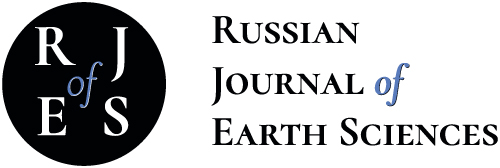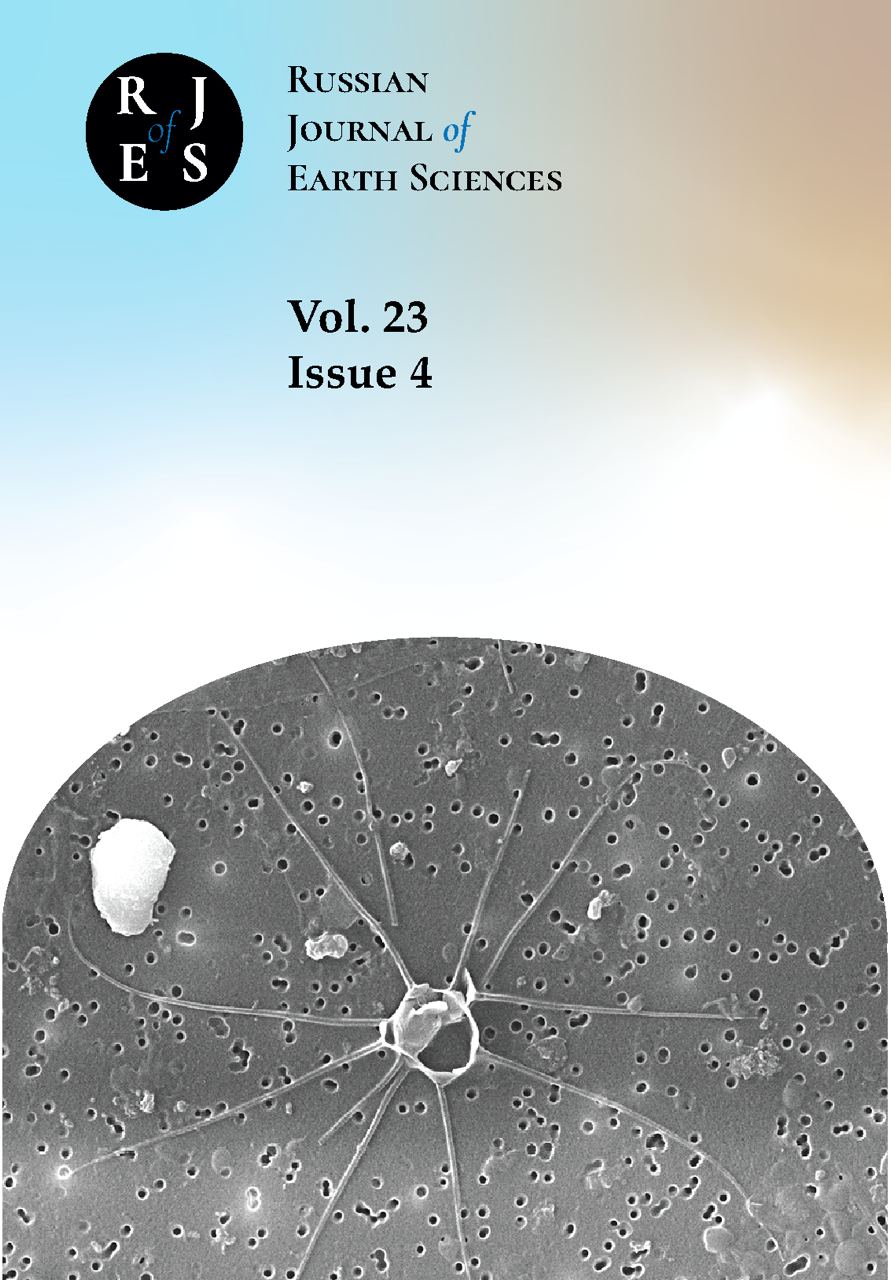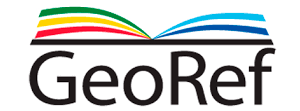Балтийский федеральный университет имени Иммануила Канта
Калининградская область, Россия
Kaliningrad, Калининградская область, Россия
УДК 551.4.042 Экзогенные процессы и формы рельефа
ГРНТИ 37.01 Общие вопросы геофизики
ГРНТИ 37.15 Геомагнетизм и высокие слои атмосферы
ГРНТИ 37.25 Океанология
ГРНТИ 37.31 Физика Земли
ГРНТИ 38.01 Общие вопросы геологии
ОКСО 05.03.03 Картография и геоинформатика
ОКСО 05.06.01 Науки о Земле
ТБК 6315 Топография. Топографические съемки
ТБК 6343 География почв. Геоморфология
BISAC SCI SCIENCE
The shallow sandy shores of the tideless sea are regularly affected by storm activity. Foredune ridge is a natural and anthropogenic object, a natural protective barrier that protects ecosystems and populated areas from the effects of dangerous hydrometeorological phenomena such as storm surges and wind-sand flux. In the course of impact of dangerous hydrometeorological phenomena, the foredune ridge integrity is disturbed, the composing material is washed away thus forming breakthroughs. Monitoring of the foredune state is an important stage in maintaining its condition and also provides an empirical basis for predicting the impact of hazardous events. The use of ground-based laser scanning technology as well as digital photogrammetry for the study of sensitive coastal zones is justified for these purposes. In this article, we compare the results of calculating the dynamics of the beach sand material and advance them according to the results of ground-based laser scanning and digital photogrammetry. Comparability is provided by high-density clouds of ground-scan points and digital photogrammetry in a single coordinate reference. Two sections of the sensitive coastal zone of the Curonian Spit (Russian sector of the South-Eastern Baltic) have been explored in advance. A comparison of the applicability of means for obtaining digital elevation models to evaluate the dynamics of sand material has been made. In comparison with TLS, the use of UAV with the SfM algorithm is limited to post-storm surveys, since the final accuracy does not provide for reliable lithodynamic studies due to the small scale of processes comparable to measurement errors.
coast, monitoring, UAV, TLS, DGPS, photogrammetry, DEM/DTM
1. Abellán, A., J. M. Vilaplana, J. Calvet, D. García-Sellés, and E. Asensio (2011), Rockfall monitoring by Terrestrial Laser Scanning - case study of the basaltic rock face at Castellfollit de la Roca (Catalonia, Spain), Natural Hazards and Earth System Sciences, 11(3), 829-841, https://doi.org/10.5194/nhess-11-829-2011.
2. Abellán, A., J. Vilaplana, and J. Martínez (2006), Application of a long-range Terrestrial Laser Scanner to a detailed rockfall study at Vall de Núria (Eastern Pyrenees, Spain), Engineering Geology, 88(3), 136-148, https://doi.org/https://doi.org/10.1016/j.enggeo.2006.09.012.
3. Agisoft (2018), Agisoft Photoscan User Manual, Professional Edition, Version 1.4, 121 pp., Agisoft LLC.
4. Badyukova, E. N., L. A. Zhindarev, S. A. Lukyanova, and G. D. Solovieva (2017), Large accumulative forms of relief on the southeastern coast of the Baltic Sea, Oceanology, 57(4), 580-588, https://doi.org/10.1134/s0001437017040026. EDN: https://elibrary.ru/XNXQYW
5. Bienert, A., S. Scheller, E. Keane, G. Mullooly, and F. Mohan (2006), Application of terrestrial laser scanners for the determination of forest inventory parameters, International Archives of Photogrammetry, Remote Sensing and Spatial Information Sciences, 36(5), 1-5.
6. Bobykina, V. P., and Z. I. Stont (2014), Comparison of influence of strong storms of 2007 and 2012 on the coasts of the Curonian Spit, in Problems of explore and conservation natural and cultural heritage of the national park «Curonian Spit», 10, pp. 173-182, IK BFU, Kaliningrad (in Russian).
7. Bobykina, V. P., and Z. I. Stont (2015), Winter storm activity in 2011-2012 and its consequences for the Southeastern Baltic coast, Water Resources, 42(3), 371-377, https://doi.org/10.1134/s0097807815030021. EDN: https://elibrary.ru/UFWTNZ
8. Boldyrev, V. L., V. P. Bobykina, and E. M. Burnashov (2008), State of the Curonian Spit coast after the winter storm period, in Problems of explore and conservation natural and cultural heritage of the national park «Curonian Spit», 6, pp. 105-114, IK BFU, Kaliningrad (in Russian).
9. Brasington, J., D. Vericat, and I. Rychkov (2012), Modeling river bed morphology, roughness, and surface sedimentology using high resolution terrestrial laser scanning, Water Resources Research, 48(11), https://doi.org/10.1029/2012wr012223.
10. Chang, K. T., H. M. Fang, S. S. Hsiao, and C. S. Li (2021), Beach Topographic Change Analysis Using Multi-temporal UAV Data, IOP Conference Series: Earth and Environmental Science, 799(1), 012,022, https://doi.org/10.1088/1755-1315/799/1/012022.
11. Clapuyt, F., V. Vanacker, and K. V. Oost (2016), Reproducibility of UAV-based earth topography reconstructions based on Structure-from-Motion algorithms, Geomorphology, 260, 4-15, https://doi.org/10.1016/j.geomorph.2015.05.011.
12. Collins, B. D., and N. Sitar (2005), Monitoring of Coastal Bluff Stability Using High Resolution 3 D Laser Scanning, in Site Characterization and Modeling, pp. 1-11, American Society of Civil Engineers, https://doi.org/10.1061/40785(164)5.
13. Colomina, I., and P. Molina (2014), Unmanned aerial systems for photogrammetry and remote sensing: A review, ISPRS Journal of Photogrammetry and Remote Sensing, 92, 79-97, https://doi.org/10.1016/j.isprsjprs.2014.02.013.
14. Cook, K. L. (2017), An evaluation of the effectiveness of low-cost UAVs and structure from motion for geomorphic change detection, Geomorphology, 278, 195-208, https://doi.org/10.1016/j.geomorph.2016.11.009.
15. Coveney, S., and A. S. Fotheringham (2011), Terrestrial laser scan error in the presence of dense ground vegetation, The Photogrammetric Record, 26(135), 307-324, https://doi.org/10.1111/j.1477-9730.2011.00647.x.
16. Danchenkov, A. (2016), Modern technology in dune complexes monitoring on the Vistula spit, in Proceedings of Inter- national Conference "Managinag risks to coastal regions and communities in a changinag world" (EMECS’11 - SeaCoasts XXVI), https://doi.org/10.31519/conferencearticle_5b1b93b8dc3ab4.15459971.
17. Danchenkov, A., N. Belov, and Z. Stont (2019), Using the terrestrial laser scanning technique for aeolian sediment transport assessment in the coastal zone in seasonal scale, Estuarine, Coastal and Shelf Science, 223, 105-114, https://doi.org/10.1016/j.ecss.2019.04.044. EDN: https://elibrary.ru/XLXDDJ
18. Danchenkov, A., N. Belov, E. Bubnova, and S. Myslenkov (2023), Foredune defending role: Vulnerability and potential risk through combined satellite and hydrodynamics approach, Remote Sensing Applications: Society and Environment, 30, 100,934, https://doi.org/10.1016/j.rsase.2023.100934. EDN: https://elibrary.ru/KABZEK
19. Danchenkov, A. R., and N. S. Belov (2019), Morphological changes in the beach-foredune system caused by a series of storms. Terrestrial laser scanning evaluation, Russian Journal of Earth Sciences, 19(4), 1-14, https://doi.org/10.2205/2019ES000665. EDN: https://elibrary.ru/BFJQCB
20. Delacourt, C., P. Allemand, M. Jaud, P. Grandjean, A. Deschamps, J. Ammann, V. Cuq, and S. Suanez (2009), DRELIO: An Unmanned Helicopter for Imaging Coastal Areas, in Special Issue No. 56. Proceedings of the 10th International Coastal Symposium ICS 2009, vol. II, pp. 1489-1493.
21. Dudzińska-Nowak, J., and P. Wężyk (2014), Volumetric changes of a soft cliff coast 2008-2012 based on DTM from airborne laser scanning (Wolin Island, southern Baltic Sea), Journal of Coastal Research, 70, 59-64, https://doi.org/10.2112/si70-011.1.
22. Eisenbeiss, H. (2011), The potential of unmanned aerial vehicles for mapping, in Photogrammetric Week’11, pp. 135-145, Wichmann-Verlag, Heidelberg.
23. Fabbri, S., B. M. S. Giambastiani, F. Sistilli, F. Scarelli, and G. Gabbianelli (2017), Geomorphological analysis and classification of foredune ridges based on Terrestrial Laser Scanning (TLS) technology, Geomorphology, 295, 436-451, https://doi.org/10.1016/j.geomorph.2017.08.003.
24. Furukawa, Y., and J. Ponce (2010), Accurate, Dense, and Robust Multiview Stereopsis, IEEE Transactions on Pattern Analysis and Machine Intelligence, 32(8), 1362-1376, https://doi.org/10.1109/tpami.2009.161.
25. Gonçalves, J. A., and R. Henriques (2015), UAV photogrammetry for topographic monitoring of coastal areas, ISPRS Journal of Photogrammetry and Remote Sensing, 104, 101-111, https://doi.org/10.1016/j.isprsjprs.2015.02.009.
26. Haala, N. (2009), Comeback of digital image matching, in Photogrammetric Week’09, pp. 289-301, Wichmann-Verlag, Heidelberg.
27. Haala, N., M. Cramer, and M. Rothermel (2013), Quality of 3D point clouds from highly overlapping UAV Imagery, The International Archives of the Photogrammetry, Remote Sensing and Spatial Information Sciences, XL-1/W2, 183-188, https://doi.org/10.5194/isprsarchives-xl-1-w2-183-2013.
28. Hengl, T. (2006), Finding the right pixel size, Computers & Geosciences, 32(9), 1283-1298, https://doi.org/10.1016/j.cageo.2005.11.008.
29. Hodge, R., J. Brasington, and K. Richards (2009), In situ characterization of grain-scale fluvial morphology using Terrestrial Laser Scanning, Earth Surface Processes and Landforms, pp. 954-968, https://doi.org/10.1002/esp.1780.
30. James, L. A., M. E. Hodgson, S. Ghoshal, and M. M. Latiolais (2012), Geomorphic change detection using historic maps and DEM differencing: The temporal dimension of geospatial analysis, Geomorphology, 137(1), 181-198, https://doi.org/10.1016/j.geomorph.2010.10.039.
31. James, M. R., and S. Robson (2012), Straightforward reconstruction of 3D surfaces and topography with a camera: Accuracy and geoscience application, Journal of Geophysical Research: Earth Surface, 117(F3), https://doi.org/10.1029/2011jf002289.
32. Jeyaraj, S., B. Ramakrishnan, and R. Ramsankaran (2022), Application of Unmanned Aerial Vehicle (UAV) in the assessment of beach volume change-A case study of Malgund beach, in OCEANS 2022 - Chennai, pp. 1-14, IEEE, https://doi.org/10.1109/oceanschennai45887.2022.9775290.
33. Johnson, K., E. Nissen, S. Saripalli, J. R. Arrowsmith, P. McGarey, K. Scharer, P. Williams, and K. Blisniuk (2014), Rapid mapping of ultrafine fault zone topography with structure from motion, Geosphere, 10(5), 969-986, https://doi.org/10.1130/ges01017.1.
34. Kempeneers, P., B. Deronde, S. Provoost, and R. Houthuys (2009), Synergy of Airborne Digital Camera and Lidar Data to Map Coastal Dune Vegetation, Journal of Coastal Research, 25(6), 73-82.
35. Kirlis, V. I. (1971), Some peculiarities of seashore dynamics of the Kursiu-Nerija barrier, 4(67), 211-224.
36. Lane, S. N., T. D. James, and M. D. Crowell (2000), Application of Digital Photogrammetry to Complex Topography for Geomorphological Research, The Photogrammetric Record, 16(95), 793-821, https://doi.org/10.1111/0031-868x.00152.
37. Lee, H., S. Lim, and D. Park (2011), Application of terrestrial laser scanner and raster operations to change detection of beach, Journal of Coastal Research, pp. 1692-1696.
38. Lee, H.-S., I.-H. Kim, and H.-G. Kim (2016), Application of Terrestrial 3D Laser Scanning to Monitor Changes of Beach Landforms, Journal of Coastal Research, 75(sp1), 173-177, https://doi.org/10.2112/si75-035.1.
39. Milan, D. J., G. L. Heritage, and D. Hetherington (2007), Application of a 3D laser scanner in the assessment of erosion and deposition volumes and channel change in a proglacial river, Earth Surface Processes and Landforms, 32(11), 1657-1674, https://doi.org/10.1002/esp.1592.
40. Milan, D. J., G. L. Heritage, A. R. G. Large, and I. C. Fuller (2011), Filtering spatial error from DEMs: Implications for morphological change estimation, Geomorphology, 125(1), 160-171, https://doi.org/10.1016/j.geomorph.2010.09.012.
41. Mitasova, H., M. Overton, and R. S. Harmon (2005), Geospatial analysis of a coastal sand dune field evolution: Jockey’s ridge, north carolina, Geomorphology, 72(1), 204-221, https://doi.org/https://doi.org/10.1016/j.geomorph.2005.06.001.
42. Mitasova, H., M. F. Overton, J. J. Recalde, D. J. Bernstein, and C. W. Freeman (2009), Raster-Based Analysis of Coastal Terrain Dynamics from Multitemporal Lidar Data, Journal of Coastal Research, 25(2), 507-514.
43. Morozov, A. F., and O. V. Petrov (2010), Atlas of Geological and Environmental Geological Maps of the Russian Area of the Baltic Sea, 78 pp., VSEGEI (in Russian).
44. Neitzel, F., and J. Klonowski (2011), Mobile 3D mapping with a low-cost UAV system, The International Archives of the Photogrammetry, Remote Sensing and Spatial Information Sciences, XXXVIII-1/C22, 39-44, https://doi.org/10.5194/isprsarchives-xxxviii-1-c22-39-2011.
45. Nex, F., and F. Remondino (2013), UAV for 3D mapping applications: a review, Applied Geomatics, 6(1), 1-15, https://doi.org/10.1007/s12518-013-0120-x. EDN: https://elibrary.ru/XHHWKG
46. Nocerino, E., F. Menna, F. Remondino, and R. S. Lunazzi (2013), Accuracy and Block Deformation Analysis in Automatic UAV and Terrestrial Photogrammetry - Lesson Learnt, ISPRS Annals of the Photogrammetry, Remote Sensing and Spatial Information Sciences, II-5/W1, 203-208, https://doi.org/10.5194/isprsannals-ii-5-w1-203-2013.
47. Obanawa, H., Y. S. Hayakawa, H. Satio, and C. Gomez (2014), Comparison of DSMs derived from UAV-SfM method and terrestrial laser scanning, Journal of the Japan society of photogrammetry and remote sensing, 53(2), 67-74, https://doi.org/10.4287/jsprs.53.67.
48. Olaya, V. (2009), Chapter 6 Basic Land-Surface Parameters, in Developments in Soil Science, vol. 33, pp. 141-169, Elsevier, https://doi.org/10.1016/s0166-2481(08)00006-8. EDN: https://elibrary.ru/OZTPNX
49. Pe’eri, S., and B. Long (2011), LIDAR technology applied in coastal studies and management, Journal of Coastal Research, 62, 1-5, https://doi.org/10.2112/si_62_1.
50. Pierrot Deseilligny, M., and I. Clery (2011), APERO, an Open Source Bundle Adjusment Software for Automatic Calibration and Orientation of Set of Images, The International Archives of the Photogrammetry, Remote Sensing and Spatial Information Sciences, XXXVIII-5/W16, 269-276, https://doi.org/10.5194/isprsarchives-XXXVIII-5-W16-269-2011.
51. Poulton, C. V. L., J. Lee, P. Hobbs, L. Jones, and M. Hall (2006), Preliminary investigation into monitoring coastal erosion using terrestrial laser scanning: case study at Happisburgh, Norfolk, Bulletin of the Geological Society of Norfolk, 56, 45-64.
52. Puliti, S., H. Ørka, T. Gobakken, and E. Næsset (2015), Inventory of Small Forest Areas Using an Unmanned Aerial System, Remote Sensing, 7(8), 9632-9654, https://doi.org/10.3390/rs70809632.
53. Remondino, F., L. Barazzetti, F. Nex, M. Scaioni, and D. Sarazzi (2011), UAV photogrammetry for mapping and 3D modeling - current status and future perspectives, The International Archives of the Photogrammetry, Remote Sensing and Spatial Information Sciences, XXXVIII-1/C22, 25-31, https://doi.org/10.5194/isprsarchives-xxxviii-1-c22-25-2011.
54. Rinaudo, F., F. Chiabrando, A. Lingua, and A. Spanò (2012), Archaeological site monitoring: UAV photogrammetry can be an answer, The International Archives of the Photogrammetry, Remote Sensing and Spatial Information Sciences, XXXIX-B5, 583-588, https://doi.org/10.5194/isprsarchives-xxxix-b5-583-2012.
55. Rotnicka, J. (2013), Aeolian vertical mass flux profiles above dry and moist sandy beach surfaces, Geomorphology, 187, 27-37, https://doi.org/10.1016/j.geomorph.2012.12.032.
56. Rowlands, K. A., L. D. Jones, and M. Whitworth (2003), Landslide Laser Scanning: a new look at an old problem, Quarterly Journal of Engineering Geology and Hydrogeology, 36(2), 155-157, https://doi.org/10.1144/1470-9236/2003-08.
57. Sallenger Jr., A. H., W. B. Krabill, R. N. Swift, J. Brock, J. List, M. Hansen, R. A. Holman, S. Manizade, J. Sontag, Meredith, K. Morgan, J. K. Yunkel, E. B. Frederick, and H. Stockdon (2003), Evaluation of Airborne Topographic Lidar for Quantifying Beach Changes, Journal of Coastal Research, 19(1), 125-133. EDN: https://elibrary.ru/MAAEAX
58. Sergeev, A., D. Ryabchuk, V. Zhamoida, and I. Leont’ev (2016), Application of onshore laser scanning data for mathematic modeling of coastal profile changes, in Proceedings of International Conference "Managinag risks to coastal regions and communities in a changinag world" (EMECS’11 - SeaCoasts XXVI), Academus Publishing, https://doi.org/10.31519/conferencearticle_5b1b943d5666e6.34864386. EDN: https://elibrary.ru/YSWCLH
59. Sibson, R. (1981), A Brief Description of Natural Neighbor Interpolation, in Interpreting Multivariate Data, pp. 21-36, John Wiley & Sons, New York.
60. Snavely, N., S. M. Seitz, and R. Szeliski (2007), Modeling the World from Internet Photo Collections, International Journal of Computer Vision, 80(2), 189-210, https://doi.org/10.1007/s11263-007-0107-3. EDN: https://elibrary.ru/LHMJOM
61. Stont, Z. I. (2014), Current trends in the hydro-meteorological parameters of the South-East Baltic and their effect on coastal processes. An abstract of a PhD thesis, 22 pp., IK BFU, Kaliningrad (in Russian).
62. Stont, Z. I., A. Y. Sergeev, and M. O. Ulyanova (2020), Dynamics Of Dune Massifs In Various Meteorological Conditions On The Example Of The Curonian Spit (South-Eastern Baltic Sea Coast), Geography, Environment, Sustainability, 13(3), 57-67 (in Russian). DOI: https://doi.org/10.24057/2071-9388-2020-52; EDN: https://elibrary.ru/ONPPTA
63. Topcon (2010), Instruction manual, laser scanner GLS-1500 series, 88 pp., Topcon corporation.
64. Travelletti, J., T. Oppikofer, C. Delacourt, J.-P. Malet, and M. Jaboyedoff (2008), Monitoring landslide displacements during a controlled rain experiment using a long-range terrestrial laser scanning (TLS), in The International Archives of the Photogrammetry, Remote Sensing and Spatial Information Sciences, vol. 37, pp. 485-490.
65. Turner, D., A. Lucieer, and C. Watson (2012), An Automated Technique for Generating Georectified Mosaics from Ultra-High Resolution Unmanned Aerial Vehicle (UAV) Imagery, Based on Structure from Motion (SfM) Point Clouds, Remote Sensing, 4(5), 1392-1410, https://doi.org/10.3390/rs4051392.
66. Turner, I. L., M. D. Harley, and C. D. Drummond (2016), UAVs for coastal surveying, Coastal Engineering, 114, 19-24, https://doi.org/10.1016/j.coastaleng.2016.03.011.
67. Westaway, R. M., S. N. Lane, and D. M. Hicks (2000), The development of an automated correction procedure for digital photogrammetry for the study of wide, shallow, gravel-bed rivers, Earth Surface Processes and Landforms, 25(2), 209-226, https://doi.org/10.1002/(sici)1096-9837(200002)25:2<209::aid-esp84>3.0.co;2-z.
68. Westoby, M. J., J. Brasington, N. F. Glasser, M. J. Hambrey, and J. M. Reynolds (2012), ’Structure-from-Motion’ photogrammetry: A low-cost, effective tool for geoscience applications, Geomorphology, 179, 300-314, https://doi.org/10.1016/j.geomorph.2012.08.021.
69. White, S. A., and Y. Wang (2003), Utilizing DEMs derived from LIDAR data to analyze morphologic change in the North Carolina coastline, Remote Sensing of Environment, 85(1), 39-47, https://doi.org/https://doi.org/10.1016/S0034-4257(02)00185-2. EDN: https://elibrary.ru/MAAEBH
70. Xhardé, R., B. F. Long, and D. L. Forbes (2011), Short-Term Beach and Shoreface Evolution on a Cuspate Foreland Observed with Airborne Topographic and Bathymetric LIDAR, Journal of Coastal Research, 62, 50-61, https://doi.org/10.2112/si_62_6.
71. Zanutta, A., A. Lambertini, and L. Vittuari (2020), UAV Photogrammetry and Ground Surveys as a Mapping Tool for Quickly Monitoring Shoreline and Beach Changes, Journal of Marine Science and Engineering, 8(1), 52, https://doi.org/10.3390/jmse8010052.
72. Zevenbergen, L. W., and C. R. Thorne (1987), Quantitative analysis of land surface topography, Earth Surface Processes and Landforms, 12(1), 47-56, https://doi.org/10.1002/esp.3290120107.

















